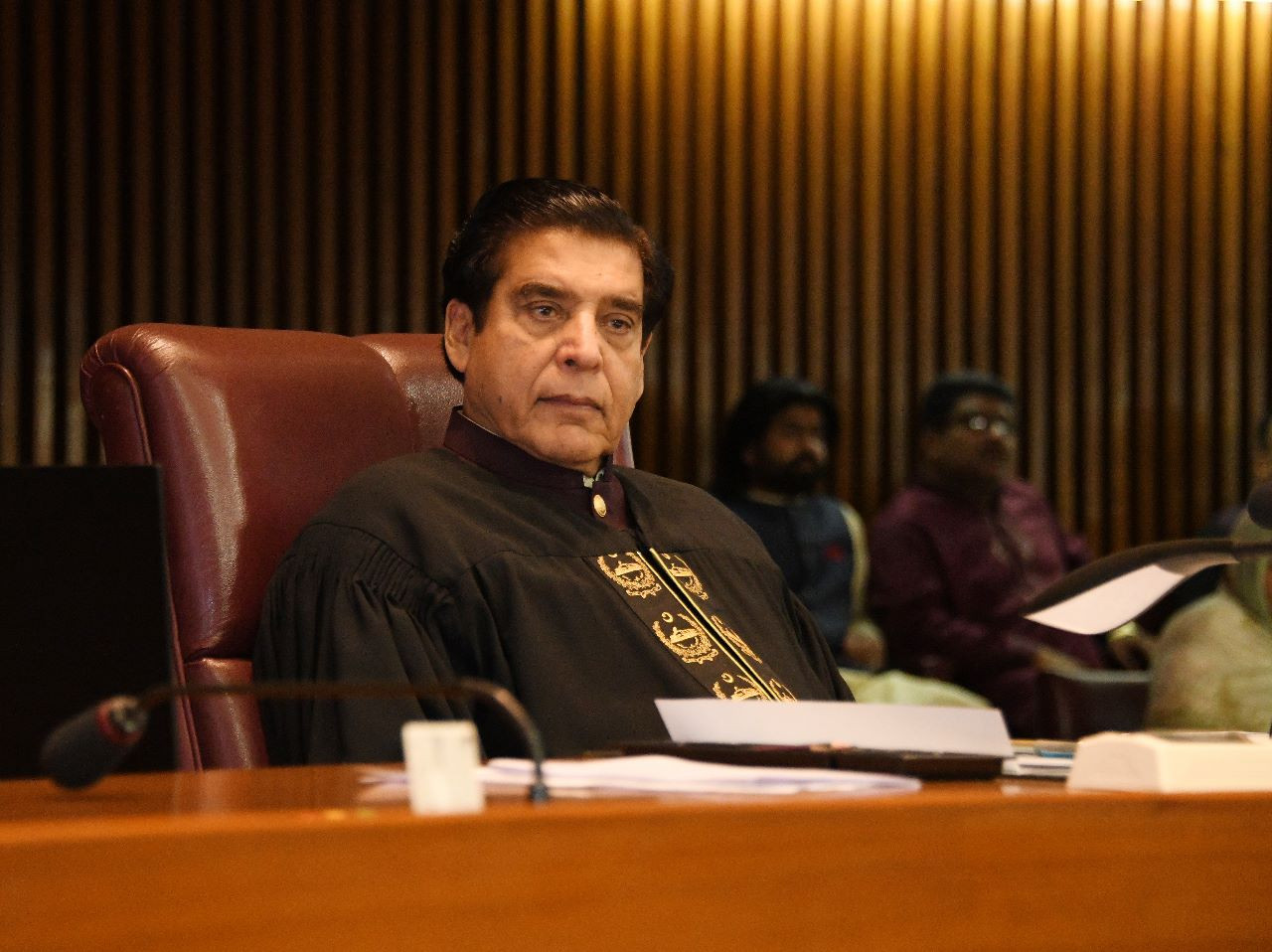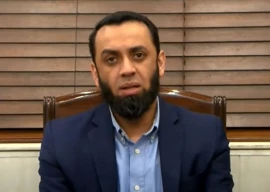
National Assembly Speaker Raja Pervez Ashraf has said the parliament has not yet taken a decision about summoning some Supreme Court judges before the NA Standing Committee on Rules of Procedure and Privileges.
“We haven’t held any discussion with regard to summoning [some apex court] judges before the privileges committee,” Ashraf, who belongs to the Pakistan Peoples Party (PPP), said on Saturday, while talking to Express New during an interview.
“I was asked through a point of order to communicate the sentiments of the house to the Supreme Court. Some members also talked about summoning members of an SC bench before the parliament’s privileges committee.
“I, as the custodian of the house, presented these sentiments to the apex court through a letter. Anything that harms the dignity and honor of the house can be discussed [at the privileges committee].
“The MPs have the right to freely express themselves in the parliament and that right cannot be abridged even by a court of law,” he said.
Raja Pervez Ashraf, who also served as the country’s prime minister from June 22, 2012 to March 24, 2013, said some judges of the Supreme Court endorsed the Legal Framework Order (LFO) introduced by military ruler General Pervez Musharraf.
The LFO, issued in August 2002, provided for the general elections of 2002 and the revival of the 1973 Constitution of Pakistan but added numerous amendments to the Constitution.
The Supreme Court overruled the LFO in October 2002, stating that the amendments would have to be ratified by the parliament in the manner provided in the original 1973 Constitution—the amendments would have to be approved by two-thirds of both houses of the bicameral body.
After the October 2002 general elections, Musharraf's supporters gained a majority in the parliament but they did not have the required two-thirds supermajority to ratify the LFO.
In December 2003, a faction of the PPP was persuaded to vote for a compromise amendment bill, the 17th Amendment, through which parts of the LFO were incorporated into the Constitution.
Talking with reference to the LFO, Ashraf said General Musharraf usurped all the rights of the parliament.
"A judge of the Supreme Court told Musharraf that he was providing complete legal cover to him. He [the judge] said: ‘I empower you to amend the Constitution’. And the dictator later made changes in the Constitution.”
Ashraf asked if that was not the subversion of the Constitution.
“And if it was a subversion of the Constitutions then wouldn’t it be the right thing [for the Supreme Court] to hold that judge accountable as all the characters [who aided Musharraf] are still alive.”
He said: Shouldn’t the SC have asked that judge as to how he empowered an individual to amend the Constitution which can only be amended by parliament with a two-third majority.
“The judiciary needs to hold such judges accountable so that no one may help in legitimizing an unconstitutional act. A judge should also be held accountable if he helps in subverting the Constitution.”
The NA speaker said all state institutions must operate within their constitutional limit. “All of us must follow the Constitution in letter and spirit."
He, however, acknowledged that the judiciary has always protected the parliament whenever the latter came under attack. He said the judiciary has all the right to strike down a piece of legislation which it finds to be against the spirit of the Constitution.
Ashraf, however, insisted that parliament is the supreme intuition and there is no check on parliament. Parliament is regulated from within.
“Unfortunately, there is an impression that the supremacy of the parliament is being compromised,” he said in an apparent reference to a piece of legislation—the Supreme Court (Practice and Procedure) Bill 2023—which the apex court suspended even before its becoming an act of parliament.
“It is strange that the legislature cannot make a law. There is concern among lawmakers. Our judiciary should do some serious thinking about it. [We must understand that] this is the only parliament for the judiciary of the country and this is the only judiciary for the parliament of the country.”





1731325890-0/trump-(24)1731325890-0-165x106.webp)












COMMENTS
Comments are moderated and generally will be posted if they are on-topic and not abusive.
For more information, please see our Comments FAQ